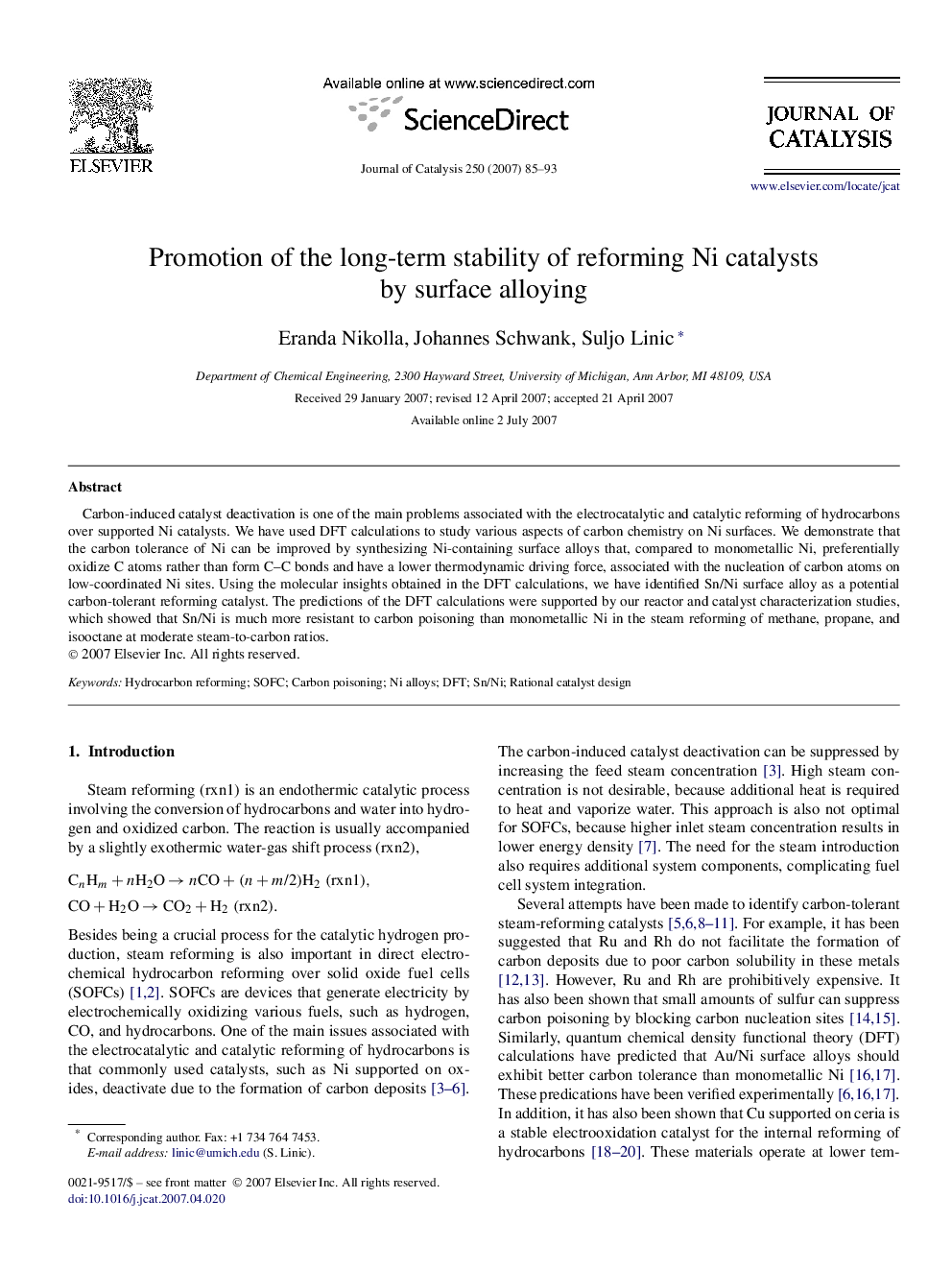| Article ID | Journal | Published Year | Pages | File Type |
|---|---|---|---|---|
| 63143 | Journal of Catalysis | 2007 | 9 Pages |
Carbon-induced catalyst deactivation is one of the main problems associated with the electrocatalytic and catalytic reforming of hydrocarbons over supported Ni catalysts. We have used DFT calculations to study various aspects of carbon chemistry on Ni surfaces. We demonstrate that the carbon tolerance of Ni can be improved by synthesizing Ni-containing surface alloys that, compared to monometallic Ni, preferentially oxidize C atoms rather than form C–C bonds and have a lower thermodynamic driving force, associated with the nucleation of carbon atoms on low-coordinated Ni sites. Using the molecular insights obtained in the DFT calculations, we have identified Sn/Ni surface alloy as a potential carbon-tolerant reforming catalyst. The predictions of the DFT calculations were supported by our reactor and catalyst characterization studies, which showed that Sn/Ni is much more resistant to carbon poisoning than monometallic Ni in the steam reforming of methane, propane, and isooctane at moderate steam-to-carbon ratios.
